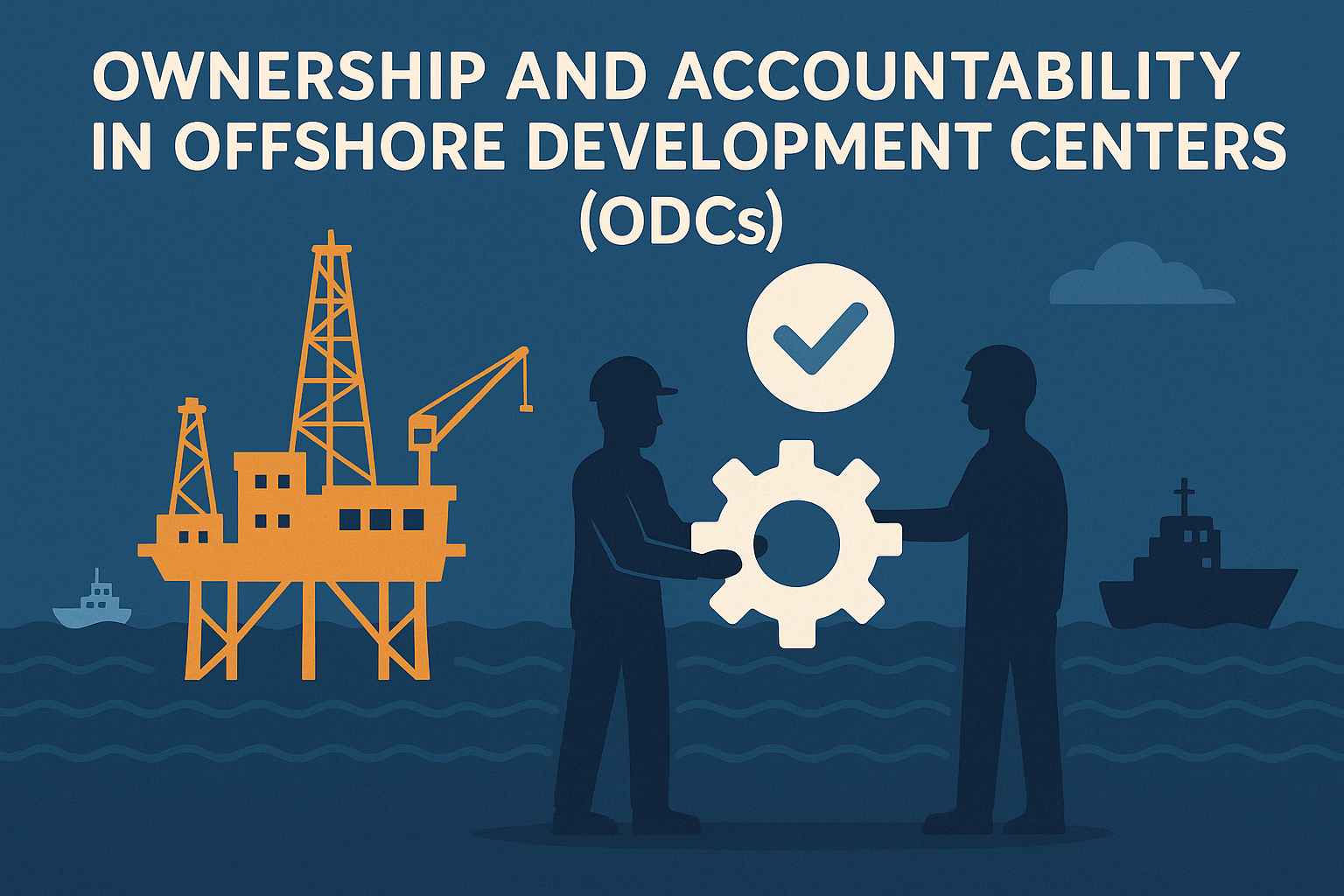When teams are thousands of miles away, clarity on who owns what becomes the backbone of productive, high-trust collaboration.
Why Ownership Matters More in ODCs
In traditional in-house setups, informal communication and physical proximity often fill gaps in accountability. But in ODCs, those safety nets vanish. Without clearly defined ownership, offshore teams risk becoming reactive executors rather than proactive contributors.
Common symptoms of poor ownership in ODCs:
Multiple people assume someone else is responsible
Missed deadlines with unclear root causes
Low initiative or innovation from offshore teams
Excessive micromanagement by onshore teams
Building a Culture of Ownership
True ownership is not about assigning blame—it’s about empowering decision-making. To achieve that, organizations need to:
Define Roles and Responsibilities Explicitly
Use RACI or RAPID frameworks to assign clear ownership at every level:
Product vision → Onshore Product Owner
Feature delivery → Offshore Technical Leads
Code quality → Each developer, with offshore QA support
Shift From Task-Taking to Problem-Solving
Encourage offshore teams to ask: ―What problem are we solving?‖ instead of ―What should I do next?‖
Create space for them to make suggestions, raise risks, or challenge assumptions.
Tie Performance Metrics to Ownership Behaviors
Move beyond task completion. Reward:
Proactive risk communication
Quality-first development (not just velocity)
Documentation and knowledge sharing
End-to-end thinking (from requirement to support)
Structural Enablers of Accountability
Dedicated offshore leadership: Appoint offshore leads who own delivery, not just coordination.
Decentralized decision rights: Let offshore teams control aspects of design, tech stack, or estimation.
Transparent escalation channels: Empower offshore teams to raise blockers early without fear.
Conclusion
Ownership in ODCs isn’t a personality trait—it’s a product of structure, culture, and trust. The most successful offshore setups treat their remote teams like co-owners, not code factories. When everyone knows their role and feels trusted to lead, accountability becomes natural—and business outcomes improve.





